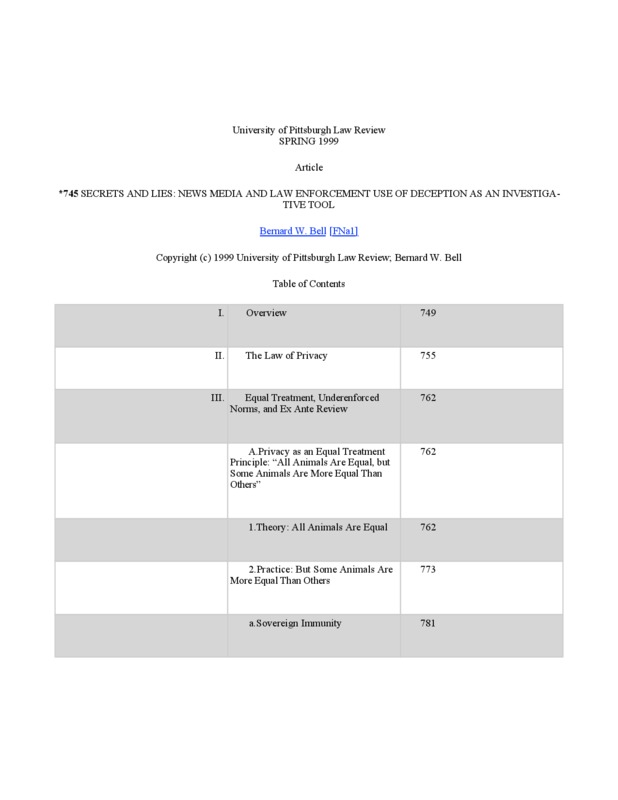Byline: Bernard W. Bell; 1999-05-01; University of Pittsburgh Law Review;
Report: Legal and Scholarly Analysis and Commentary
Tags: deception
". . .Arguably, courts should tolerate law enforcement intrusions more readily than media intrusions because identifying and punishing criminals is more important than informing the public-in other words, law enforcement's mission should take precedence over the press's. Thus, the key distinction between press and law enforcement undercover operations is the difference in their missions, not, as I will later suggest, the difference in the types of public control over the respective institutions. For example, courts might show less solicitude toward government use of undercover techniques whengovernment agencies employ such techniques to protect the government's proprietary interests. Courts might entertain more serious reservations about approving the use of undercover techniques to identify inefficient or untrustworthy employees than to uncover violations of criminal law. If so, because government, whether pursuing law enforcement or its own proprietary interests, is subject to popular control, only the heightened valuation of the government's mission, not the existence of greater control, could justify the favoring of law enforcement over the press. . ."
Description:Overview of law enforcement and press undercover operations and the—in the eyes of the author—excessive use of deception in our society.
Rights: Copyrighted, used with permission.
